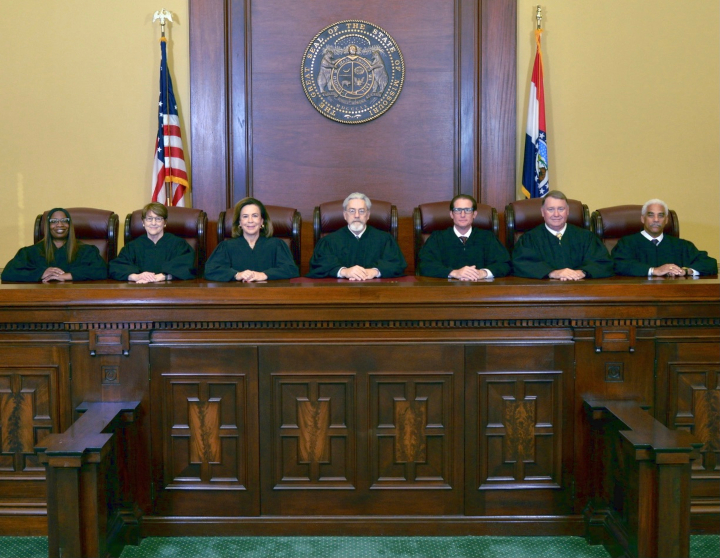On June 24, Missouri Attorney General Eric Schmitt issued opinion 2022-22 in response to the United States Supreme Court’s overturning of Roe v. Wade. Schmitt’s opinion made Missouri the first state in the country to outlaw abortion after the decision.
While there was much fanfare on both the left and right, very little changed for Missouri abortion providers.
Even before Republicans took the majority in 2002 the General Assembly, then under Democratic control, began passing legislation to restrict abortion access as well as procedures and regulations associated with abortion. That process continued after the republicans took the majority and accelerated once those same pro-life Republicans were elected to a supermajority in 2010.
The result of these two decades of laws was that the year prior to Schmitt’s post-verdict opinion, the number of abortions performed in Missouri had shrunk into the low double digits.
“A lot of these laws required abortion centers to meet the same qualifications as large surgical centers … they would do all of these kinds of infrastructure, and physical requirements that were costly and burdensome and that clinics could not meet and then were forced to close,” Mallory Schwarz, Executive Director at NARAL Pro-Choice Missouri said.
“They were cutting off providers with threats to their licenses, threats to the clinics — all threats that were not about the health of a person seeking abortion, that were not about their health or safety, they were only about trying to put these clinics out of business,” she added.
By the time Schmitt signed the post-verdict opinion, Missouri had just one active clinic in St. Louis.
“Two or three abortions a month does not a clinic make,” Alison Dreith, director of strategic partnerships at the Midwest Access Coalition said of the infrequent abortions performed in the St. Louis clinic.
The Midwest Access Coalition, also known as MAC, is a 501c3 non-profit that utilizes volunteers to transport people seeking abortion from pro-life states to pro-choice states; as well as assisting with the expenses of lodging, travel, food, healthcare and child-care.
People seeking abortions can text or call MAC’s hotline, they usually receive a response within a day. From there the abortion fund works to accommodate all expenses and secure all reservations for the individual they’re transporting.
MAC was doing work in Missouri well before Roe was overturned. Even while abortion was technically legal in Missouri, restrictions in Missouri law led groups like MAC to drive women to Illinois to places like the Hope Clinic Granite City, six miles across the Mississippi River where those restrictions and regulations are not in place.
Now that Roe has been overturned, MAC volunteers still drive women past the clinic in Missouri, and continue the short distance across the bridge into abortion-friendly Illinois.
However, the future of groups like MAC is uncertain.
“We know that more restrictions and attacks are on the horizon,” Dreith said.
Restrictions after Roe was overturned
MAC claims to have seen an increase in demand for its service since the Roe v. Wade decision. According to Dreith, they have already served around the same amount of patients in 2022 as they did in 2021. However, their future may be in doubt.
Last session Rep. Mary Elizabeth Coleman, R-Arnold, attempted to ban providing assistance to people seeking abortions, “regardless of where the abortion is or will be performed.” Violations included both transportation and information about out-of-state abortions.
While the bill did not advance out of committee, she won a competitive primary and is the favorite to be in the state Senate next session. Drieth sees similar restrictions forthcoming
“We expect more legislation attempting to ban organizations like MAC,” she said.
There have been discussions in pro-life circles about restricting groups like MAC, pro-life groups have been adamant that they are not seeking any prosecution of women.
Missouri Right to Life is the most powerful pro-life lobbying organization in the state, and is widely credited as a key reason the staunchly pro-life Republican party’s dominance in the state has reinforced its position. It doesn’t plan to seek legislation to prosecute women who cross state lines to seek abortions according to Susan Klein, the legislative liaison for the organization.
In Klein’s view, many women who get abortions are pressured or threatened into it.
“Missouri Right to life is not in support of prosecuting women who seek abortions,” Klein said. “A lot of times those people who are taking women out of the state are threatening them … we need to look at who is threatening these women.”
Klein pointedly did not rule out Missouri Right to Life lobbying for legislation to ban organizations like MAC.
However, there are some who believe that Missouri could go down the same path that Kansas did by putting the question of abortion on a statewide ballot.
While pro-life candidates have dominated Missouri elections for decades, asking the individual question in a referendum form could see a different result.
In Kansas, where pro-life candidates also dominate general elections, the pro-choice side won in a single referendum question.
“I don’t think they want to bite themselves in their own ass,” Dreith said of the chances of Republicans leaving abortion access up to a vote.
Dreith thinks that abortion could end up on a ballot in Missouri in the future as an initiative petition. Recently, recreational marijuana made it to the ballot after a long process in which medicinal marijuana was blocked by the legislature before passing as an initiative petition of its own in 2018.
Dreith thinks something similar could happen with abortion in Missouri.
“Abortion is a winning issue — we’ve just been gerrymandered out of our healthcare,” she said. “They (marijuana advocates) organized people and organized money … We have the people, we just need the money.”
Klein believes the Republican supermajority in Missouri’s Senate can unify and codify pro-life protections.
“We need to make sure that our Republicans come back to the Republican platform,” she said. “It’s all about Missouri defending unborn babies and defending women … hopefully we can come together and move forward with our Senate becoming a 24-person conservative caucus.”











